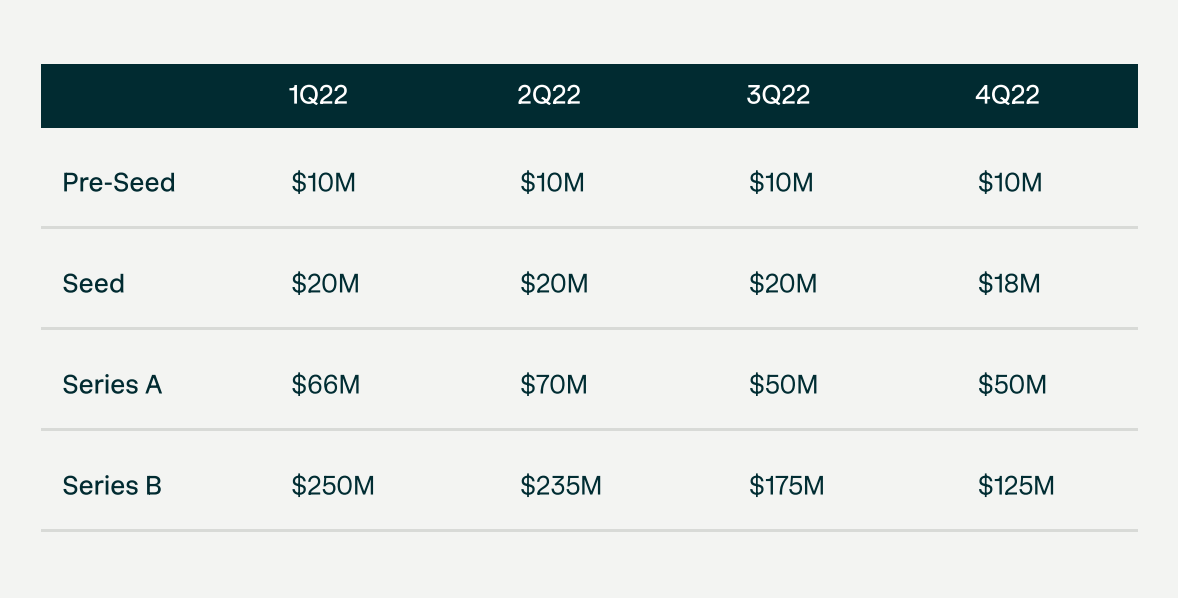Can we be Frank? JP Morgans $175 million M&A error.
No. 2: Long take: Corporate fraud more endemic than what's public. Plus, deep dive into the crypto regulatory space, crypto contagion and more.
Hey friends✌️,
JPM announced last week it was shuttering a website called Frank for which it paid $175 million, going on to accuse the founders of inventing millions of accounts. JPM moved to sue the former Frank executives Charlie Javice and Olivier Amar in a Delaware federal court alleging widespread fraud at a company. Frank offered a simple tool to help families navigate the often byzantine financial aid process, in addition to listing numbers of scholarships and low-cost college courses.
The details are pretty damning. It appears Frank was not being entirely….er…frank.
Ms. Javice apparently reached out in 2021 about an acquisition, claiming 4.25 million users. In reality, according to the bank, Frank had fewer than 300,000 real users.
The backdrop
Education in the US is no small market. Loans have risen from 12% of debt in 2003 to 36% in 2022, now topping $1.75 trillion in total student loan debt (including federal and private loans). Yes, it’s completely absurd how much students have to go into debt in this country to get an education. The current borrower owes an average of $28,950. This has led to some ill advised “remedies” like the Biden-Harris Student Debt Relief, currently making its way through the courts.
But JPM is not interested in solving the student debt crisis and it should be fairly obvious why JPM would want to get in on it. And from what I can gleam from the court documents, it appears they did extensive due diligence. It also appears there was some pretty shady goings on by the Frank team (like making completely fake accounts).
Not a good look.
Seriously (funny) - Tweet thread of the week 🧵
But certainly an interesting (and hilarious) story.
Ben Kaufman - Director of Research & Investigations the Student Borrower Protection Center, gives a take that is as hilarious as it is informative, reminding us Twitter is not all memes, shitposts, and scorched earth.


Reminder: A well-curated timeline can provide a straight-to-the-source education (my FintechTweeps list).
Jokes aside (and they really do write themselves here), recent high-profile cases of corporate fraud like Frank, SBF/ FTX, Celsius, WellsFargo and Wirecard have made it feel as if corporate fraud is becoming more endemic (For those interested, I highly recommended the Netflix documentary: Skandal! Bringing Down Wirecard. The story is absolutely bonkers). Turns out, it may be more than just a feeling. According to a new research study How pervasive is corporate fraud, a full 10 percent of public companies commit securities fraud every year. Further, another 40 percent commit some sort of accounting violation. The authors posit that corporate fraud destroys 1.6 percent of equity value each year — or about $830 billion in 2021.
Corporate fraud is certainly nothing new. And it’s not just limited to the crypto or financial services spaces’. But, as crypto (or Web3 for those who like marketing rebrands) is still so nascent and has had some significant blowups of late, I wanted to take a closer look at the regulatory space here. Many talk about how “smart regulation” is critical to ensure the future of this sector. But what does that mean? And who are the (U.S.) regulators overseeing this space? What does the future look like? The answer is nuanced. And fascinating.
Cryptocurrency regulation in the United States
Today, there are a number of federal and state agencies who regulate parts of the industry. There are certainly gaps, however, and increased calls for regulation seem to come from everywhere. Plus, like any good story, there’s a good old school “O.K. Corral” showdown brewing (agencies are highly political after all). Let’s take a closer look.
Securities and Exchange Commission (SEC)
The SEC is an independent federal government regulatory agency responsible for protecting investors, maintaining fair and orderly functioning of the securities markets, and facilitating capital formation. They have stated that most cryptocurrencies are securities, like any other stock or ETF. SEC Chairman Gary Gensler wrote before the Aspen Security Forum in 2021;
“…many tokens may be unregistered securities” because “folks buying these tokens are anticipating profits, and there’s a small group of entrepreneurs and technologists standing up and nurturing the projects.”
To determine if a transaction is a security we look to The Howey Test, named after a 1946 U.S. Supreme Court case. It puts forth qualifying criteria for an “investment contract," defined as “an investment of money in a common enterprise with the expectation of profit derived from the efforts of others.” Simply, if a transaction meets the criteria, it would then be subject to U.S. securities laws. The SEC published a framework of sorts for determining an “Investment Contract” with respect to Digital Assets in 2019.
While the SEC is definitely moving to assert its authority in this space (and on a hiring spree to support that aim). In 2022, they levied $2.6B in Crypto-related Fines. It is not without competition. Nor, criticism. Gensler’s SEC has taken a hardline approach to the crypto market. It has received considerable criticism from both the crypto sector as well as fellow regulators. For one, SEC Commissioner Hester Peirce has outlined problems with The Howey Test in the past. She argues the existence of an investment contract centers on the asset itself but also on the promises attached to that contract. The two components are mutually exclusive in her view.
The crypto industry tends to have similarly negative views. This week at the World Economic Forum in Davos, Switzerland, Brad Garlinghouse, CEO of cryptocurrency and blockchain company Ripple, said during an interview with CNBC’s “Squawk Box Europe” he was hopeful for a resolution is his spat with the SEC “within the first half of 2023” adding “the conduct of the agency so far had been “embarrassing.”
That’s a bold strategy if anything 🤔
Commodity Futures Trading Commission (CFTC)
An independent agency of the US government created in 1974, the CFTC regulates the derivatives markets, including futures, swaps, and certain kinds of options. According to the CFTC, cryptocurrencies are commodities that should fall under their domain. Since making this claim, the CFTC has taken actions against unregistered Bitcoin futures exchanges, enforced laws prohibiting wash trading and prearranged trades and addressed a Ponzi Scheme.
They have notably come out pretty publicly against what Gary Gensler is doing over at the SEC. Commissioner Caroline D. Pham released a statement in July 2022 criticising the SEC for taking a punitive and not preventative look at regulation; for pursuing “regulation by enforcement.”
Former CFTC Commissioner Brian Quintenz seems to be on the same page with Pham, tweeting:


Quintenz stated in August of last year that “the SEC has no authority over pure commodities or their trading venues, whether those commodities are wheat, gold, oil …. or crypto assets.”
The SEC vs. CFTC is shaping up to be quite a turf battle. Watch this space.
Internal Revenue Service (IRS)
The IRS is the revenue service of the U.S. federal government responsible for collecting federal taxes. According to the IRS, virtual assets are treated as property, and thus subject to capital gains taxes. Short-term capital gains—equal to the ordinary tax rate—are charged when investors hold the asset for less than a year. For assets held more than a year, the IRS applies the friendlier long-term capital gains taxes. According to the 2022 IRS Criminal Investigation Annual Report, the agency “seized record amounts of data and crypto currency” in 2022- a full $7 billion. And, at least according to some, that’s not enough. According to a report from Barclays, the tax gap from crypto trades could be as much as $50 billion per year. I’m sure Uncle Sam has a similar view. Look for the IRS to get more aggressive in 2023.
U.S. Department of Treasury
The Financial Crimes Enforcement Network (FinCEN) is a bureau of the United States Department of the Treasury that collects and analizes information about financial transactions to combat domestic and international money laundering, terrorist financing, and other financial crimes. FinCEN does not consider cryptocurrencies as legal tender, but in 2012, begun to recognize digital assets as a substitute for currency. Which means it is lumped in with other money transmitters, and thus falls under The Bank Secrecy Act (BSA). A main requirements of BSA is that financial institutions must report cash currency transactions exceeding $10,000, regardless of whether it’s in one transaction or several cash transactions.
In early 2020, FinCEN announced they would take a more aggressive stance towards cryptocurrencies in an effect to reduce financial crime. They’ve taken a punitive approach, recently rendering a $100 Million Enforcement Action Against BitMEX in 2021 and $29 Million Enforcement Action Against Bittrex in 2022 for “Willful Violations of the Bank Secrecy Act.”
Financial Stability Oversight Council (FSOC)
The FSOC was established as part of the Dodd–Frank Wall Street Reform and Consumer Protection Act, with a remit to identify and monitor excessive risks to the U.S. financial system. It is a collaborative body chaired by the Secretary of the Treasury (Janet Yellen) and also includes Federal Reserve Chair Jerome Powell as well as the heads of several other regulatory agencies. In a recent report: Digital Asset Financial Stability Risks and Regulation published in response to President Joe Biden's executive order earlier last year on "Ensuring the Responsible Development of Digital Assets," the panel recommended three regulatory updates to address gaps.
the passage of legislation providing for rule-making authority for federal financial regulators over the spot market for crypto-assets that are not securities;
steps to address regulatory arbitrage including coordination, legislation regarding risks posed by stablecoins, legislation relating to regulators’ authorities to have visibility into, and otherwise supervise, the activities of all of the affiliates and subsidiaries of cryptoasset entities, and appropriate service provider regulation;
study of potential vertical integration by crypto-asset firms.
TL;DR - Congress should pass legislation (do the hard stuff) and we need more time to study. Not super clear (or helpful).
Congress, for their part, seem to be taking on the challenge.
Consumer Financial Protection Bureau (CFPB)
The CFPB is responsible for consumer protection in the financial sector and was also created as part of the Dodd–Frank. It’s jurisdiction includes banks, credit unions, securities firms, payday lenders, mortgage-servicing operations, foreclosure relief services, debt collectors, and other financial companies operating in the United States. The CFPB has been relatively quiet on the regulatory front but recently released a bulletin analyzing the rise Rise of Crypto-Asset Complaints including “Pig butchering,” where fraudsters gain a victim’s confidence, often via romantic means, to get the victims to set up crypto-asset accounts to ultimately steal.
In December 2022 the CFPB announced their first known probe of a crypto firm (Nexo Financial).
Office of the Comptroller of the Currency (OCC)
The OCC is an independent bureau within the Treasury Department and serves to charter, regulate, and supervise all national banks and thrift institutions. Acting Comptroller Michael Hsu has taken a clearly more skeptical stance of crypto vs. his predecessor. Hsu supports gathering data from crypto firms directly in an effort to provide regulators with a “fuller picture of what’s going on…” Under his leadership starting in May 2021, the regulator announced it would revisit all digital asset-related guidance put forth under former Acting Comptroller Brian Brooks.
“Everything’s on the table,” Hsu said of the regulator’s past actions regarding cryptocurrency activities and crypto firm charters.
The Federal Deposit Insurance Corporation (FDIC)
The FDIC is a United States government corporation supplying deposit insurance to depositors in American commercial and savings banks. In April of 2022, they wrote “the FDIC is concerned that crypto assets and crypto–related activities are rapidly evolving, and risks of this area are not well understood given the limited experience with these new activities.” They went on to require all FDIC-supervised institutions that “intend to engage in, or that are currently engaged in, any activities involving or related to crypto assets (also referred to as “digital assets”) should notify the FDIC”, with detailed guidance in a letter on the information they sought.
This is not exhaustive of course, and does not include the various states that have put forth regulatory frameworks on digital assets and handed out fines like New York, Wyoming, Arizona, and California.
Confused? You’re not alone. Crypto companies trying to operate amongst the myriad, often opposing regulators, have been calling for sensible regulation for years. Coinbase’s CEO Bryan Armstrong wrote an Op-Ed on the heels of the FTX collapse in November of 2022 asking for just that; more regulation. He argued U.S. regulators have made it extremely difficult for crypto firms to navigate by failing to provide a workable framework for how these services should be offered in a safe, transparent way. He takes this a step further, arguing that this lack of transparency incentivises crypto companies to set up shop outside the U.S.,often is jurisdictions with weak regulation and enforcement. Like FTX.
Of course Coinbase is no stranger to the regulators crosshairs. And they’ve had some pretty blunt words. After the SEC issued guidance stating that nine crypto tokens listed on Coinbase were securities as part of a separate case charging a former Coinbase employee with insider trading, Coinbase immediately disputed the findings. And of course there is a famous Twitter thread from Armstrong in September 2021 detailing “sketchy behavior” at the SEC. Armstrong was angry they effectively curtailed their lend feature when others like BlockFi, Celsius et al had similar products. We all know that didn’t end well.
For those following along, it is generally not a wise strategy to insult a regulator, but we’ve seen this not infrequently. In hindsight, asking for permission here probably saved them and is generally the right course in financial services (though sometimes that means you’re DOA - see Novi).
It is clear there is no love lost between Armstrong and the SEC. He also notably supports the DCCPA (as did SBF), a divisive bill in crypto circles that outlines how the Commodities Futures Trading Commission (CFTC) would regulate the crypto industry.
So to answer the question of who regulates the crypto sector it appears the answer is still a little unclear.
Today it’s everyone, and no one.
And a bunch of burned investors to show for it.
Didn’t See That Coming
In an apparent 180, New FTX Chief Says John J. Ray III says “he’s open to the idea of rebooting operations.” Story here. Previously, he called the FTX situation the “worst” case of corporate control he’d ever seen. Story here.
Fintech & Crypto Update 📊
The lending unit of crypto firm Genesis filed for U.S. bankruptcy protection, owing creditors at least $3.4 billion. Genesis provided loans to hedge funds, institutions, and consumer lenders but has suffered in the fallout from Luna, Three Arrows, and FTX. Story here. Earlier in the week, despite ongoing investigations by the SEC, Digital Currency Group founder Barry Silbert said he “remains confident” about the company’s future. Story here.
Robinhood rolls out a MetaMask wallet competitor to 1 Million Users; GM says the wallet will function as a “browser” for Web3. Story here.
Justice Department announces charges against Crypto Platform Bitzlato for laundering more than $700 million of Illicit Money. Story here.
Goldman Sachs said it has lost about $3 billion since 2020, mostly on its consumer lending business. CEO David Solomon admits Goldman took on too much, too quickly in consumer business that lead to a “disappointing quarter.” Story here.
Stripe announced a service to make it easier for Web3 companies to accept payments in cryptocurrencies like Bitcoin. Stripe was an early adopter of Bitcoin payments in 2014 but shut down support in 2018 due to lack of demand. They resurfaced in 2021 and have been building out capabilities like global USDC payouts to 67 countries in 2022.
Stripe cuts internal valuation by 11%. Again. Story here.
The “one click checkout” space was wild in 2022 (remember Fast?). Turns out the OG in the space Amazon will make Buy With Prime more available to U.S. based merchants on January 31, 2023 after seeing a 25% increase in shopper conversion in a pilot. Story here.
Revolut delays ‘RevCoin’ crypto launch after FTX crisis. Story here.
Blue Owl Capital Inc. Expands Private Wealth Distribution Channel Through iCapital and Allfunds. Story here.
Money Transfer Surveillance Program run by a little known Arizona non profit called the Transaction Record Analysis Center, or TRAC, raises privacy concerns. TRAC was set up by the Arizona AGs office in 2014 as part of a settlement reached with Western Union to combat cross-border drug trafficking. Story here.
Overheard at Davos
Overheard at Davos 🛩 🏔
Deal Book reports from Davos saying an executive told them something he — and most of the attendees at the World Economic Forum — would most likely never say in public: “I hope E.S.G. just goes away.” Certainly a polarized subject in the investing world, with Larry Fink, CEO of BlackRock Inc. (who supports ESG initiatives), saying the narrative surrounding ESG investing has become ugly and is creating “a tremendous polarization.” Story here.
FTX Watch 👀
You’ve heard by now of the charges against SBF/ FTX/Alameda; they stole a bunch of FTX customer money via a private back door $68 billion line of credit to trade (& buy $300mm in Bahamian condos and make political and philanthropic donations).
Now, SBF can’t seem to STFU.
Lawyer: So, maybe let’s just lay low for awhile. No more talking please.
SBF: Now that I’ve got some free time in my parents basement, I’ve stated a Substack and am getting more into Twitter.
Several media outlets are looking into who the two anonymous parties who partially backed SBFs $250 million bond. Story here.
FTX has recovered at least $5 billion of liquid assets, including cash, crypto and securities, attorneys told the bankruptcy judge.
A full 196 members of congress (of 535 senators and representatives) took money from from SBF or other senior executives at FTX. Story here.
Cramer Bounce? 🌅
Jim Cramer, host of CNBSs Mad Money is a quirky, loud figure who opines on stocks (and crypto!) on his show, pointing out the ones he thinks are real winners. The “Cramer Bounce,” was coined because of Jim Cramer's ability to affect stock prices. Specifically, his ability to shoot a stock (or crypto) in the opposite direction of his pick. Time will tell.
Deep dive: State of U.S. Early-Stage VC & Startups: 2022 🎯
Silicon Valley Bank and AngelList came up with a report detailing exactly what went down in U.S. Early-Stage Venture & Startups in 2022. The report details what many already know: venture performance declined slowly, and then suddenly.
Source: AngelList
By market sector, fintech in 2022 captured the largest share of investment activity and capital deployed on AngelList, as investor enthusiasm for Web3 waned (Web3 startups captured the largest share of capital deployed in 2021).
Source: AngelList
Series B valuations were particularly brutal, falling 50% from a median valuation of $250 million in the first quarter of the year to $125 million by the fourth quarter.
Source: AngelList
Good Reads & Analysis: Going Deep 📚
Partner Bank Compliance and the Impact on Fintech
The Only Crypto Story You Need, by Matt Levine
FT Partners’ CEO Monthly FinTech Market Update & Analysis
How Founders Should Think About Cash Management
Jobs 💼🤼🛠🔊
Looking for a co-founder? Cambrian's bi-annual fintech co-founder matching tool is now live! (including 75+ technical co-founders).


For any impacted by the layoffs in fintech, crypto, or the broader tech sector, here is a link to thousands of VC portfolio company jobs. H/T to Michaela Keady
That’s a Wrap 🎬
Thanks for reading. If you enjoyed this content, please tell all your fintech and crypto friends to check it out and make sure to hit the subscribe button.
If you have any feedback or thoughts, I’d love to hear from you. Best place to find me is on Twitter!
Hasta lluego amigos.
Disclosures: All content and views expressed here are the authors’ personal opinions and do not reflect the views of any of their employers or employees. The author does not guarantee the accuracy or completeness of the information provided on this page.






















